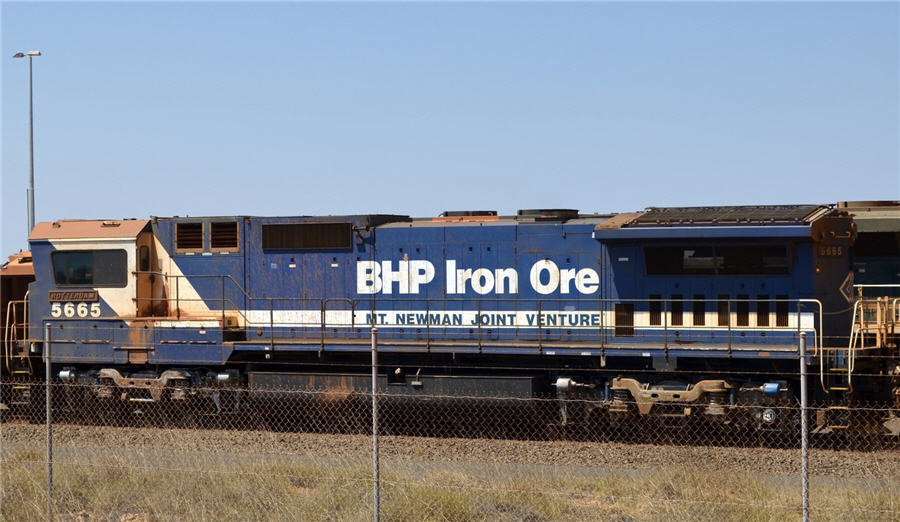
BHP Group, the world’s biggest miner, doesn’t have capacity to raise shipments into the iron ore market as competitor Vale SA faces outages following the fatal mining disaster in Brazil last month.
The global iron ore market has been thrown upside down by the tragedy, after Vale was forced to shutter operations and the Brazilian government said it’s banning certain types of dams used to hold mining waste. While rival producers such as BHP and Rio Tinto Group might be expected to fill the gap, they’ve got little room to respond after focusing in recent years on maximizing profits rather than increasing volumes.
BHP is operating its Australian iron ore operations at full strength and doesn’t expect changes as a result of the January incident, Chief Executive Officer Andrew Mackenzie told reporters on a call Tuesday.
“We don’t have any additional capacity to put into this market,” Mackenzie said. “We’ve been very clear as a company that we maximize the production from what we have already installed, we are not holding anything back.” BHP forecasts output, including material for third parties, of as much as 283 million tons in the year to July.
Most of the lost tons will come back to the market at some stage, reducing any incentive to pour money into new production
Vale has flagged a supply loss of up to 70 million tons, though the miner said it will be able to offset some of that figure. Losses of about 50 million tons would keep prices sustained at about $85 a ton, while an outage of 75 million tons would send prices to $100 a ton, according to Wood Mackenzie Ltd. The global seaborne market totals about 1.6 billion tons.
BHP and key rivals Rio Tinto and Fortescue Metals Group Ltd. have little ability to meaningfully lift shipments, Macquarie Wealth Management said in a Friday note, boosting its 2019 iron ore price forecast 22 percent to $77 a ton.
Anglo American Plc’s Kumba Iron Ore Ltd., which produces high-quality material in South Africa that competes with producers such as Vale and BHP, said Tuesday that it expects prices to average $70 to $75 a ton in 2019, well above its 2018 break-even of $41.
BHP’s Mackenzie said he expects that the issues impacting Brazilian production will be resolved over time. Most of the lost tons will come back to the market at some stage, reducing any incentive to pour money into new production, he said.
“We don’t see the case for any major investment in iron ore,” Mackenzie said.
BHP, the No. 3 global iron ore shipper after Vale and Rio, would “welcome a common, international and independent body to oversee the integrity of the construction and operation of all dams,” Mackenzie said in the text of a Tuesday speech to investors. The producer plans to meet this month with global bodies to expedite work on making industry-wide safety improvements, he said, without elaborating.
Vale and BHP’s joint Samarco iron ore mine in Brazil suffered a similar fatal incident in 2015. It is too early to say whether the more recent incident will lead to more stringent regulations that could delay or halt that operation’s potential restart, Mackenzie told reporters.
BHP’s underlying profit in the six months to the end of 2018 fell 8 percent to $3.7 billion, missing a $4.37 billion average estimate among six analyst forecasts compiled by Bloomberg, the company said earlier in a statement.
Earnings were dented by production outages including an iron ore train derailment in Western Australia and a fire at the Spence copper operation in Chile. Lower copper prices and planned maintenance programs also weighed on the result, BHP said.
BHP fell 1.3 percent in London by 9:22 a.m., paring this year’s gain to 7.6 percent.
(By David Stringer, Matthew Burgess and Thomas Biesheuvel)